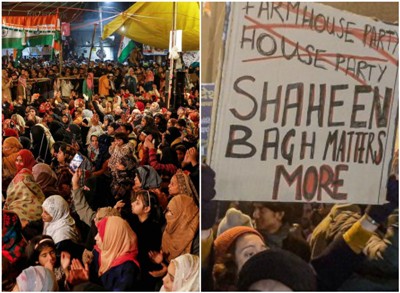

By A Special Correspondent
First publised on 2020-02-21 21:45:52
The Supreme Court is spot on in saying that while a set of people have the democratic right to protest peacefully against anything of importance, they do not have the right to inconvenience another, maybe much bigger, set of people by their actions. The court categorically said that there is a need to strike a balance between the rights of the protestors and the rights of the general public. While the court said this in the context of the Shaheen Bagh protest that has blocked a major and busy thoroughfare in Delhi which has inconvenienced the general public, it holds true for any protest by a group of citizens, any organization or a political party.
But one feels that the Supreme Court has erred in appointing a team of mediators to talk to the protestors about shifting to a less inconveniencing venue. There is either the fact that the current venue is inconveniencing the general public or the fact that it is not. If it is the former, then the court should have taken cognizance of the fact and ordered the protestors to shift. If it is the latter, then the court should have allowed them to keep protesting from the current venue. But why talk with a set of people who have willfully chosen a venue that is causing maximum inconvenience to the general public. In one's opinion, it will set a dangerous precedent and other people at other times would willfully occupy public spaces to hold protests that will throw traffic out of gear and inconvenience the general public.
There is no doubt that the Shaheen Bagh protestors have the right to protest about CAA as they feel that it will be detrimental to the Muslim community. But will their views be better heard if they block roads? Or will they be better heard if espoused articulately and forcefully from any venue? Hence, before asking the government to repeal the act, they should outline what they feel is offensive in it for them as Indian citizens? Critics of the act say that it makes religion as the test of citizenship. Is that true? The CAA seeks to grant accelerated citizenship (the refugees would, in any case, get citizenship in 11 years, CAA just shortens the waiting period to 5 years) to persecuted minorities from neighbouring countries like Pakistan, Bangladesh and Afghanistan. The persecuted minorities for this amendment have been defined as Hindu, Sikh, Parsi, Buddhist and Christian. It is obvious that since all the three countries are Muslim-majority nations, Muslims cannot be part of the persecuted minorities there. Hence, it is logical that Muslims have not been included. What is wrong with that? How does it affect the rights of Indian citizens who are Muslim and why are they protesting against this?











